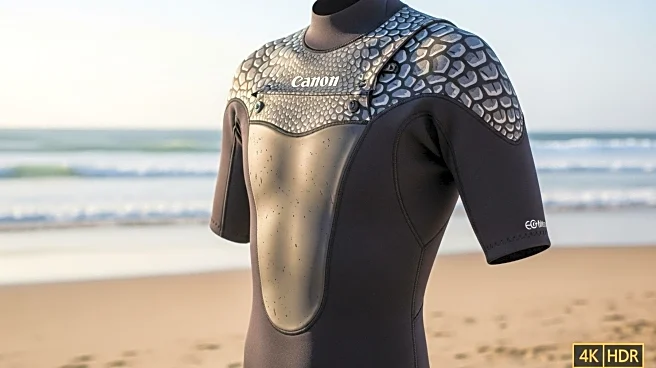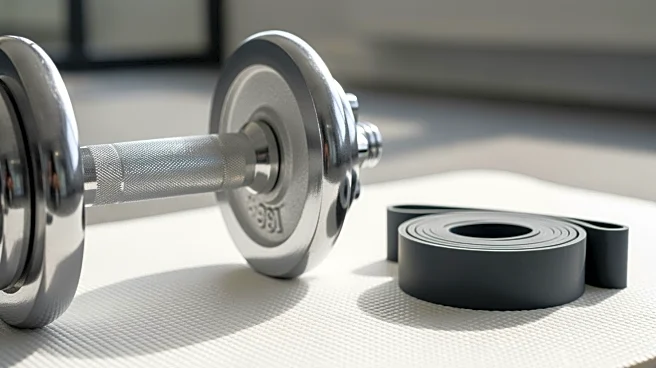What's Happening?
Researchers from Flinders University in Adelaide, Australia, have tested new bite-resistant wetsuits designed to reduce injuries from shark bites. The study involved allowing sharks to bite samples of four different materials, which were dragged behind boats. The materials tested included Aqua Armour, Shark Stop, ActionTX-S, and Brewster. The results showed that these materials could significantly reduce the severity of injuries compared to standard neoprene wetsuits. The research, published in the journal Wildlife Research, indicates that while these suits do not prevent shark bites, they can mitigate the damage, potentially reducing severe hemorrhaging and tissue loss.
Why It's Important?
The development of bite-resistant wetsuits is a significant advancement in water safety, particularly for surfers, divers, and swimmers in shark-prone areas. By reducing the severity of injuries, these suits could save lives and decrease the need for medical interventions following shark encounters. This innovation also represents a shift towards non-invasive safety measures that do not rely on altering shark behavior, thus maintaining ecological balance. The research could lead to broader adoption of such protective gear, enhancing safety for water sports enthusiasts worldwide.
Beyond the Headlines
The introduction of flexible, bite-resistant wetsuits could influence the design of other protective gear, promoting safety without compromising mobility. This development also raises questions about the balance between human safety and wildlife conservation, as it encourages coexistence without harming marine life. The study's findings may inspire further research into materials science and engineering, potentially leading to innovations in other fields requiring protective clothing.










